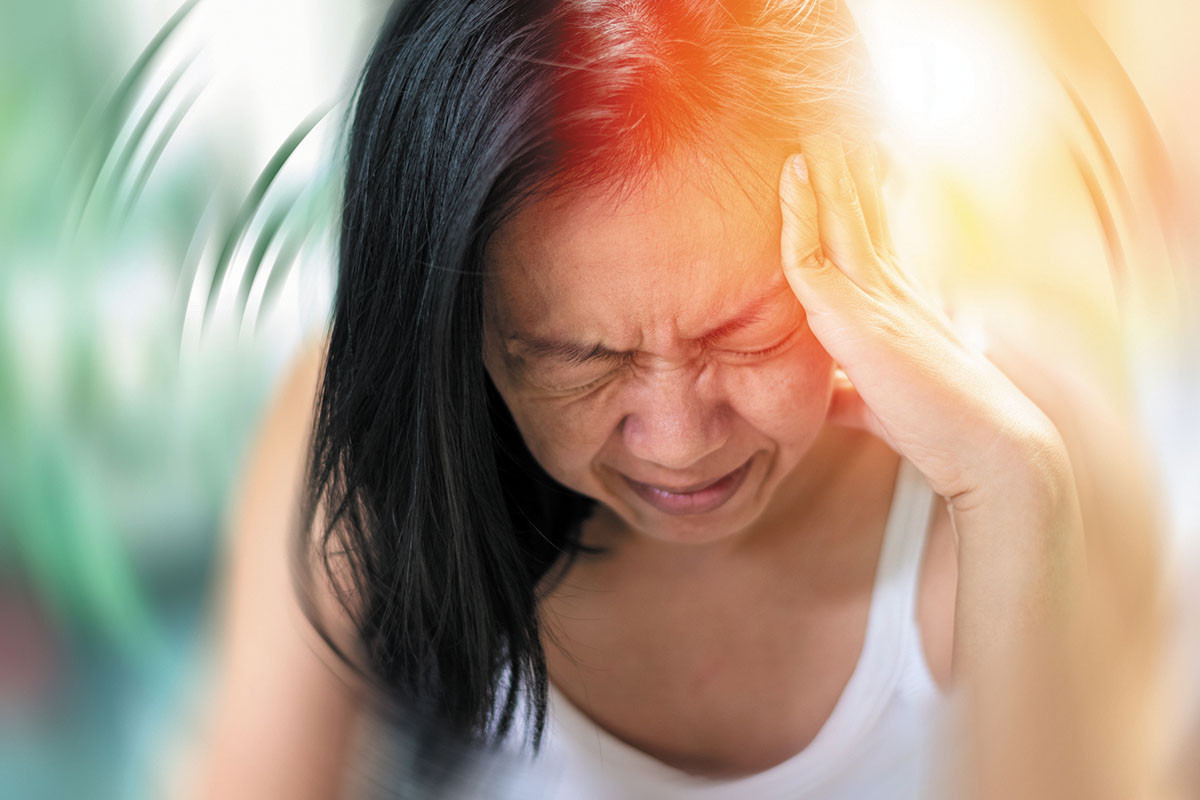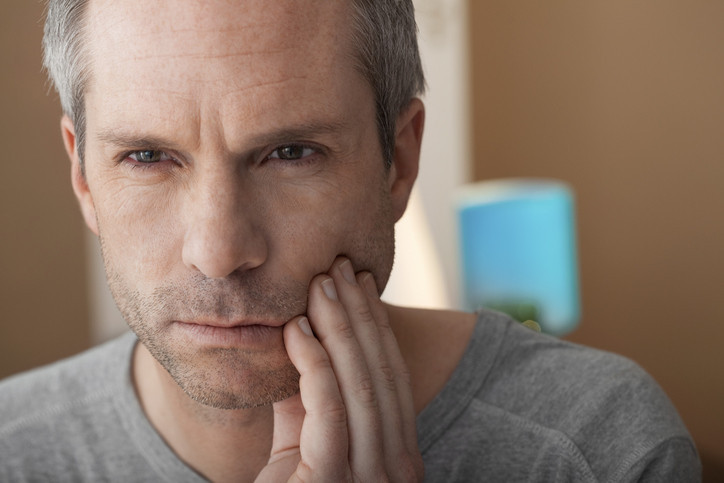
Trying to lose weight? Be careful not to lose muscle

Is your skin problem actually an autoimmune condition?

People with diabetes face higher risk of hearing loss

Antibiotic-free fixes for recurrent UTIs

Musculoskeletal syndrome of menopause: When menopause makes you ache all over

When can older women stop getting mammograms?

To lose weight, especially harmful belly fat, combine diet and exercise

Can men hold off on treating recurring prostate cancer?

The 7 types of rest and why we need them all

What are the early warning signs of cervical cancer?
Headache Archive
Articles
Women with migraines more likely to have pregnancy complications
A 2023 study suggests that women who have migraine headaches before pregnancy may have higher risks of pregnancy complications that could threaten their health or that of their babies.
Battling a "brain storm"
Migraines, which affect nearly 40 million Americans, are likely vastly underdiagnosed and undertreated. Women are three times more likely to get migraines than men, and hormones appear to be a major trigger. Other triggers include stress, disrupted sleep patterns, hunger or dehydration, certain foods or medications, and bright lights or loud noise. Newer medications are more targeted and pose fewer side effects. They include CGRP (calcitonin gene-related peptide) blockers, more effective nasal sprays, and green light therapy.
How can I tell if I have a concussion?
Concussions occur when the brain bumps or twists inside the skull after a blow to the head. Signs of concussion include headache, eye pain or fatigue, neck pain or stiffness, imbalance, impaired depth perception, difficulty remembering, or sleep pattern changes.
You don't say? The scoop on ice cream headaches
A cold-stimulus headaches, or "brain freeze," happens after a person eats or drinks something very cold. It causes a sharp pain that centers on the forehead and usually lasts several seconds. Taking smaller bites and chewing slowly can ward off this reaction.
How can I stop grinding my teeth when I'm asleep?
Teeth-grinding during sleep is common. People with the habit may wake up with sore teeth, headache, or earache. Over time, it can lead to broken teeth or jaw pain and clicking. A dentist can create a fitted mouth guard or prescribe muscle relaxants.
Struggling with migraine hangovers? Read this
Migraines can last hours or days and span several distinct phases. A post-headache phase leaves as many as four out of five migraine sufferers feeling like they have a hangover. Experts recommend different approaches to help ward off lingering symptoms depending on their intensity.
Can dehydration cause headaches?
Some people are much more prone than others to headaches related to dehydration. People who are more susceptible can avoid the headaches by making sure they drink enough fluids daily.
Health disparities and headache treatment
How can mindfulness practices help with migraine?
Many common medication treatments for migraine can cause side effects, underlining the need for more tolerable treatments. Mindfulness practice has been associated with improvement in people with chronic pain, including migraine. A study investigated whether mindfulness-based stress reduction techniques provided benefit for people experiencing migraine.

Trying to lose weight? Be careful not to lose muscle

Is your skin problem actually an autoimmune condition?

People with diabetes face higher risk of hearing loss

Antibiotic-free fixes for recurrent UTIs

Musculoskeletal syndrome of menopause: When menopause makes you ache all over

When can older women stop getting mammograms?

To lose weight, especially harmful belly fat, combine diet and exercise

Can men hold off on treating recurring prostate cancer?

The 7 types of rest and why we need them all

What are the early warning signs of cervical cancer?
Free Healthbeat Signup
Get the latest in health news delivered to your inbox!
Sign Up











